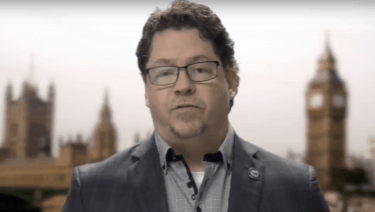This week’s International Association of Interviewers interview and interrogation training tip provided by Wicklander-Zulawski, has Chris Norris, CFI, director of WZ Europe and International Training, talking about the use of personal stories when conducting interviews and rationalizing with individuals.
When it comes to rationalizing, the first thing to remember is that we rationalize the motive and not the act. Therefore, when we share personal stories, what we’re going to do is share stories about how we understand how people, at times, can make bad decisions.
The use of personal stories can go a long way. In fact, it’s my preferred method and fits very well in my interviewing style when I sit down with someone.
These are some of the benefits of sharing a personal story:
- There’s a greater sense of reciprocity. When I open up and present a bit of myself to you, perhaps even regarding bad decisions I’ve made, then that encourages you to share a bit of yourself.
- It creates a greater sense of empathy. Sitting down and saying to someone, “Hey, I know what you’re going through,” may not go very far. But when you present a personal story of a tough decision (a bad decision) that you’ve made, then the individual gets a sense that perhaps you do understand.
- You’re putting yourself in a position of being non-judgmental. This is the most important benefit of sharing a personal story. When I share a personal story, I’m able to share my human side. I’m able to show that I, too, am fallible and that I’ve made some bad decisions. That I understand and have dealt with peer pressure. I know what it’s like to look at a bill and wonder “How are we going to make it work?” I understand desperation.
Putting yourself in a position of being a bit vulnerable, sharing that human side, and and being non-judgmental by sharing personal stories can go a long way towards getting the truth from someone during your interviews.
Every loss prevention investigator should strive to enhance their investigative interviewing skills as part of an ongoing commitment to best-in-class interviewing performance. This includes holding ourselves to an elite standard of interview and interrogation training that is ethical, moral and legal while demanding excellence in the pursuit of the truth. The International Association of Interviewers (IAI) and Wicklander-Zulawski (WZ) provide interview and interrogation training programs and additional guidance to investigators when dealing with dishonest employees, employee theft, sexual harassment, policy violations, building rapport, pre-employment interviewing, lying, denials and obtaining a statement.
By focusing on the latest information and research from experts in the field as well as academia, legal and psychological resources, these video tips provide interview and interrogation training techniques that can enhance the skill sets of professionals with backgrounds in law enforcement, loss prevention, security, asset protection, human resources, auditors, or anyone looking to obtain the truth.
To learn more, visit www.w-z.com or www.certifiedinterviewer.com.
This post was originally published in 2018 and was updated January 28, 2019.
